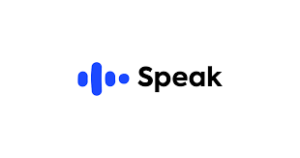Paris continues to establish itself as a major European hub for AI startups, with Poolside.ai emerging as the latest player to attract significant funding. The generative AI company, focused on speeding up software development, is in the process of raising at least $400 million, pushing its post-money valuation to $2 billion, according to sources.
Bain Capital Ventures (BCV) and DST are reportedly co-leading the current funding round. BCV, a previous backer, and DST are both in talks to contribute to what PitchBook estimates to be a $450 million round. Poolside previously raised $126 million in a notable seed round last August, attracting investors such as Air Street, Abstraction, Scribble Ventures, New Wave, Frst, Bpifrance, Felicis, Point Nine, and Redpoint.
Founding Team and Company Premise
Poolside was co-founded by Jason Warner, former CTO of GitHub, and Eiso Kant, founder of Athenian. Warner has extensive experience in developer tools and DevOps, having led engineering for Heroku and Canonical. Kant’s previous company, Athenian, built tools to optimize developer workflows and was acquired by the Linux Foundation. This strong foundation in developer tools and the DevOps space underpins Poolside’s mission to create tools that enhance software development efficiency.
Unlike generalized large language models (LLMs), Poolside focuses specifically on aiding developers to work faster, which resonates with investors. The company aims to provide a solution that developers themselves would need, reflecting Paul Graham’s philosophy of building tools that fulfill a known need. Despite competition from other AI and developer tool-focused startups like Mistral and Microsoft’s adaptation of OpenAI for GitHub, Poolside seeks to carve out a niche by addressing the specific blind spots in code development.
Although Poolside has not yet released a product for general availability, there are signs of progress and growth, such as ramping up cloud services with its compute supplier, IREN. The company’s three-step plan outlines ambitions beyond software development, eventually aiming to generalize its capabilities across various fields.
Monetization Potential
One of the compelling aspects of Poolside’s approach is its clear monetization potential. The need for co-pilot tools in software development is substantial, and the structured nature of programming makes it a promising area for AI application. This clarity in potential revenue generation positions Poolside favorably among AI startups, which often struggle with monetization.
With its strong founding team, focused mission, and significant backing, Poolside aims to become a leading player in the AI-driven software development space. By addressing a clear and large need in the market, Poolside is well-positioned to leverage its AI capabilities to create impactful tools for developers, with broader ambitions to extend its technology to other fields in the future.
See also: Language Learning App Speak Secures $20 Million, Doubling Valuation


















